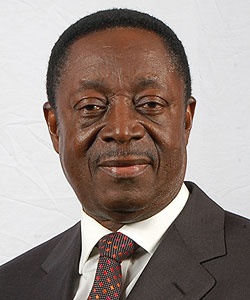
Dr. Kwabena Duffuor has called for the reintegration of traditional chiefs into Ghana’s governance system, arguing that their marginalization has contributed to social and economic decline, especially in rural areas.
In his write up “Empowering Our Chiefs,” he makes a strong case for revitalizing the chieftaincy institution to strengthen national unity and drive local development.
The Decline of Traditional Leadership
Historically, chiefs played a crucial role in local governance, security, and land management. Before colonial rule, they were at the heart of community affairs, acting as mediators and custodians of law and order.
However, the 1992 Constitution significantly reduced their influence, limiting their duties to customary affairs.
Dr. Duffuor argues that this shift has weakened the chieftaincy institution, leading to social disintegration.
“Our chiefs, once the backbone of our governance structure, have been sidelined, leaving communities vulnerable to lawlessness, rural exodus, and moral decay,” he writes.
With chiefs lacking financial support, many have been unable to address key developmental challenges in their areas.
A Renewed Partnership for Development
To address these challenges, Dr. Duffuor proposes a renewed partnership between chiefs and the government.
He advocates for allocating 20% of local revenue to traditional authorities to fund development projects, arguing that empowering chiefs will lead to stronger rural economies, improved education, and better infrastructure.
“If we give our chiefs the necessary resources and authority, they will be able to combat pressing issues like illegal mining, youth unemployment, and rural poverty,” he states.
He believes that chiefs, being deeply rooted in their communities, are better positioned to oversee local development effectively.
Legislative and Cultural Reforms
Dr. Duffuor calls for policy and legislative reforms to restore the authority of chiefs in governance.
He suggests an integration plan that allows chiefs to actively participate in policy implementation and collaborate with faith leaders, local governments, and development agencies.
He also emphasizes the importance of cultural preservation, warning that sidelining traditional institutions weakens Ghana’s national identity.
“A nation that abandons its traditions loses its soul. Our chieftaincy institution is not just a relic of the past; it is a pillar of our heritage and governance,” he asserts.
A Call to Action
Dr. Duffuor’s vision is clear: a restructured governance model where chiefs are not only empowered but also held accountable. By restoring their influence, he believes Ghana can bridge governance gaps, reduce Accra’s overconcentration, and bring life back to rural communities.
“Empowering our chiefs is not just about nostalgia; it is about creating a stronger, more balanced nation. When our traditional leaders are given the tools to lead, Ghana prospers,” he concludes.
His call for action urges policymakers to reconsider the role of traditional leaders in governance, emphasizing that chieftaincy is not just a relic of the past but a vital institution for Ghana’s future.

